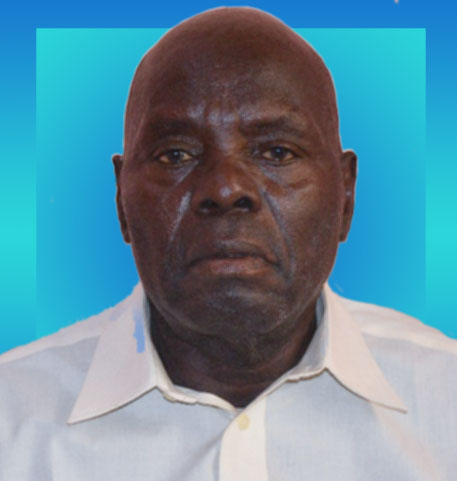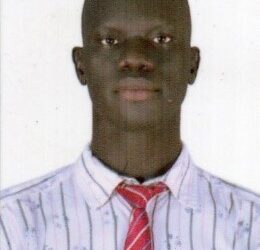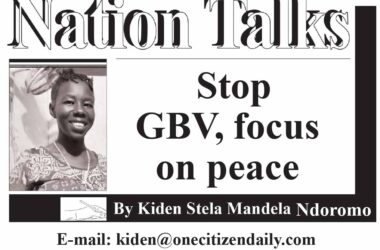By Joseph Akim Gordon
South Sudan before independence demonstrated unity of purpose.
The uniting factor was the policy of Arabism and Islamization, in which South Sudanese were regarded as second-class citizens and, to be considered in a senior government position, you must first embrace Islam.
As a result, many South Sudanese politicians were forced to become Muslims and several others were forced to embrace Islam in exchange for wealth. As such, South Sudan was determined to liberate itself from the yolk of Arab and Islamic domination.
South Sudan is only a third of the country. But the British colonial power put a condition that for Sudan to become independent, the Southern region must endorse or agree to the independence.
The Khartoum interim administration accepted the condition that, after its independence, it would grant South Sudan federal status. Sudan accepted this condition that, immediately after independence, it would grant South Sudan federal status. After Sudan’s independence, this promise was ignored. To make things worse, out of the eight hundred positions vacated by the British colonial authority, the Sudan Government offered South Sudan three junior positions in South Sudan, so this provoked South Sudan to start a liberation war in South Sudan in August 1955, even before Sudan became independent in 1956.
The liberation struggle by Anya-Nya liberation forces started in 1955 up to 1972 when the Khartoum regime realized that it was impossible to win the war all the rural areas were under the liberation forces, the Khartoum Govt. controlled the urban areas in South Sudan, and international community the United Nations supported the liberation struggle, because of the military pressure from the liberation struggle, Khartoum regime accepted the peaceful negotiation which took place in Addis-Ababa in 1972 in which South Sudan was granted local autonomy in which South Sudan formed a regional government, the regional government was doing reasonably well so the Sudan govt. started to undermine the regional Government, by dividing South Sudan into three administrative regions which were locally known as Kokora This was aimed at planting division in South Sudan and breaking the neck of the regional government, which provoked the regional government by introducing Islamic sharia law all over the country. When the situation became critical in 1983, the former leaders of the Anya-Nya liberation movement acted swiftly and moved to Bor to resume the armed struggle against the Sudanese government.
The war intensified, and some major towns were captured by the SPLA. At this critical juncture, the Sudan government accepted a peace negotiation in Kenya in 2005. The outcome of this negotiation was that the regional government was reinstated with an interim period to allow South Sudan to conduct a referendum for unity or independence of South Sudan. The charismatic leader Dr. John Garang became the first vice president in the whole of Sudan and also president of South Sudan, a position he held for only 21 days. His mysterious death in 2005 took many by surprise. Up until now, nothing clear has been revealed about his death, but many believed that it was the result of combined conspiracies by internal regional, and international forces. It is similar to the death of Patrice Lumumba of the Congo, who was a dynamic, nationalistic, and patriotic leader whose true death was revealed after several decades. Many expected that South Sudan would return to war, but fortunately, the SPLA nominated H.E. Salva Kiir to take over in a peaceful manner.
The referendum for South Sudan was conducted timely, but Khartoum spent a lot of resources to make sure that South Sudan voted for the unity of Sudan. At that time, SPLA was strong, and people believed that SPLA would be able to deliver services to the people, but within only two years of SPLA rule, the country was plunged into an unending war. The situation deteriorated, the fruits of independence disappeared in thin air, all the high expectations were dashed, and only within two years of independence, the country was plunged into a war between SPLA forces, to the extent that peace has not been fully restored.
During the years of liberation, South Sudan unity was unshakable, perhaps because we were confronting one enemy that united us to work together and achieve independence, why this unity became weaker and weaker to the extent that two years after independence we waged war against ourselves to the extent that we never realized the fruit of independence, because of war atrocities many South Sudanese were lamenting that we wagged this war to liberate South Sudan and now we are causing harm to ourselves more than the Arab, revenge killing became common as the rule of law weakened, the fruits of independence has not been realised, to the extent that those who supported us during liberation struggle are regretting, they expected this rich country should embark on development to promote socio-economic development. Before the independence of South Sudan unity among South Sudanese was very strong, for those of us who studied in Sudan once you pick up a quarrel or fight with an Arab, South Sudanese whether a Dinka, Nuer, Bari or any other tribe will immediately support his/her fellow South Sudanese, the question one should ask what real happened who de-railed our unity, accusing finger always pointed at raw politicians who sometimes in public that we are born to rule or even we can rule for even hundred years, even a father with several wives and children if you start discriminating your wives and children there will not be unity in the family so you the father is responsible for the disunity in the family.
This is the only country God has given us plenty of untapped resources, even too much for us. Let us wake up, reconcile, and forgive each other because if we continue with the path of disunity, there is a likelihood that this country will split into many parts. Let us develop the spirit of nationalism and patriotism to strengthen our unity because unity is strength and power.
The author can be reached via e-mail: akimgordon555@yahoo.com




